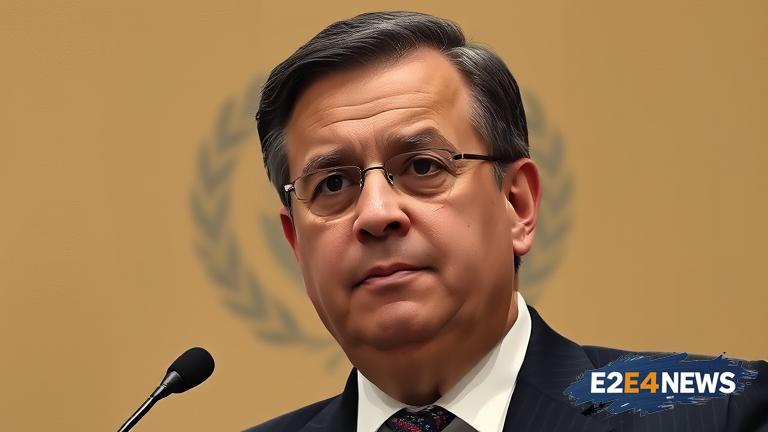The International Criminal Court (ICC) has ordered its chief prosecutor, Karim Khan, to recuse himself from a case involving Venezuela. This decision comes after concerns were raised about a potential conflict of interest. The case in question involves alleged human rights abuses and crimes against humanity committed by the Venezuelan government. The ICC had launched an investigation into these allegations, but Khan’s involvement has been called into question. The conflict of interest arises from Khan’s previous work as a lawyer, where he represented a client with ties to the Venezuelan government. This has led to concerns that Khan may not be able to remain impartial in the case. As a result, the ICC has decided that it is best for Khan to recuse himself to avoid any appearance of impropriety. The decision is a significant development in the case, which has been ongoing for several years. The Venezuelan government has been accused of a range of human rights abuses, including torture, arbitrary detention, and extrajudicial killings. The ICC’s investigation has been welcomed by human rights groups, who see it as an important step towards accountability. However, the Venezuelan government has denied all allegations of wrongdoing and has refused to cooperate with the ICC. The case is complex and involves a range of legal and political issues. The ICC’s decision to order Khan to recuse himself is a testament to the court’s commitment to upholding the highest standards of integrity and impartiality. The case will now be handed over to a new prosecutor, who will be responsible for taking it forward. The ICC’s investigation is ongoing, and it is unclear when a decision will be made. The Venezuelan government has faced widespread criticism for its human rights record, and the ICC’s investigation is seen as an important step towards holding those responsible to account. The case has also sparked a wider debate about the role of the ICC in holding governments to account for human rights abuses. The ICC is an independent international court that is responsible for investigating and prosecuting international crimes, such as war crimes, crimes against humanity, and genocide. The court has been involved in a range of high-profile cases in recent years, including investigations into alleged war crimes in Ukraine and the Democratic Republic of Congo. The ICC’s decision to order Khan to recuse himself is a significant development in the Venezuela case, and it will be closely watched by human rights groups and governments around the world. The case is a complex and sensitive one, and it will require careful handling to ensure that justice is served. The ICC’s commitment to upholding the highest standards of integrity and impartiality is essential to maintaining trust in the court and ensuring that it is able to carry out its mandate effectively. The Venezuelan government’s refusal to cooperate with the ICC has made the investigation more challenging, but the court remains committed to pursuing justice. The case is a reminder of the importance of international justice and the need for governments to be held to account for human rights abuses. The ICC’s investigation is an important step towards achieving this goal, and it will be closely watched by governments and human rights groups around the world. The decision to order Khan to recuse himself is a significant development in the case, and it highlights the importance of ensuring that the ICC’s investigations are impartial and free from conflict. The ICC’s commitment to upholding the highest standards of integrity is essential to maintaining trust in the court and ensuring that it is able to carry out its mandate effectively.





